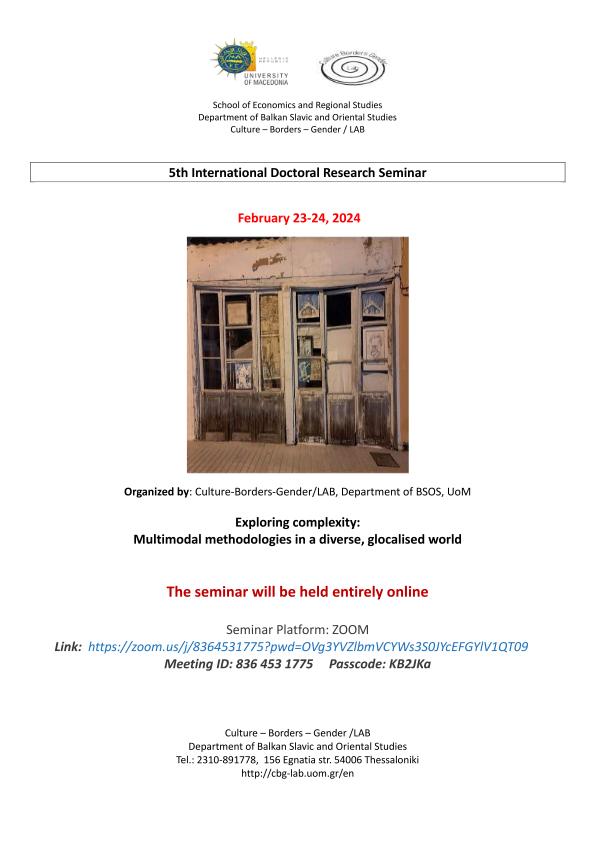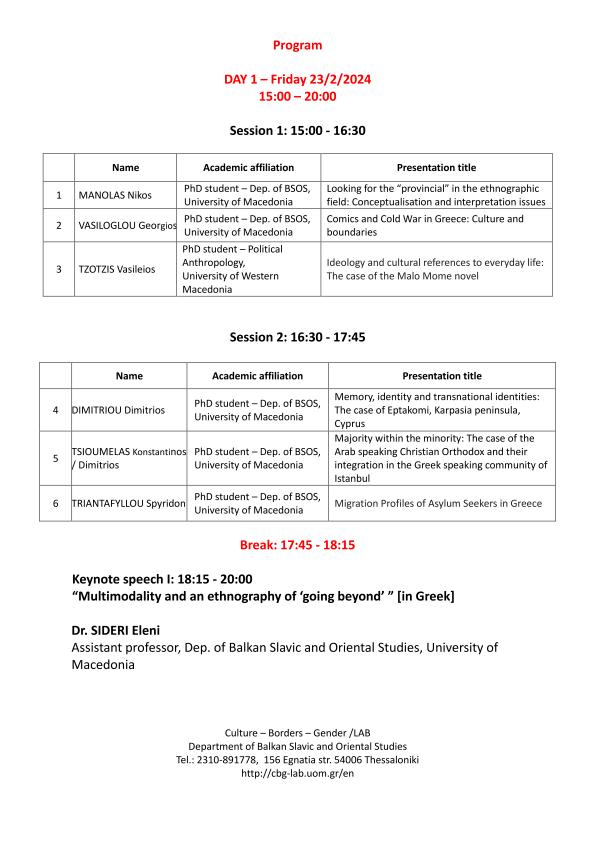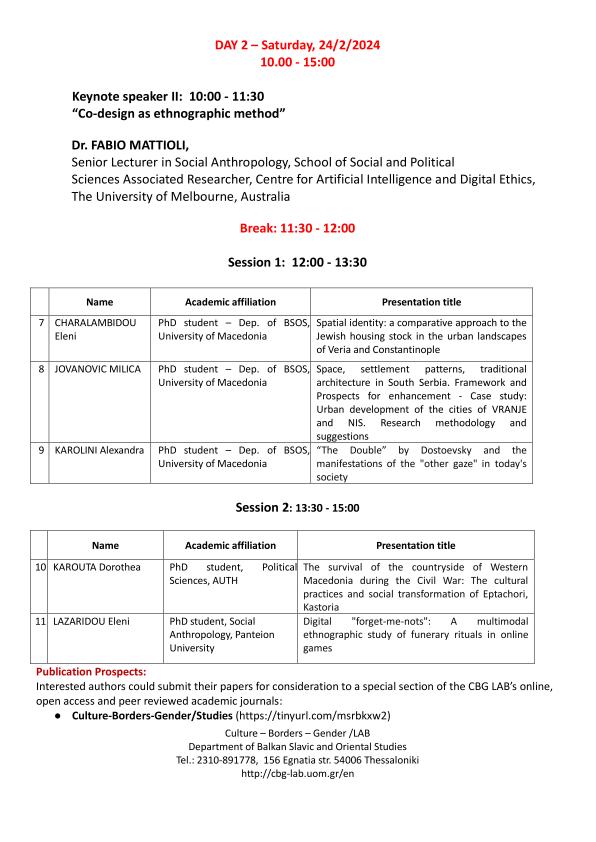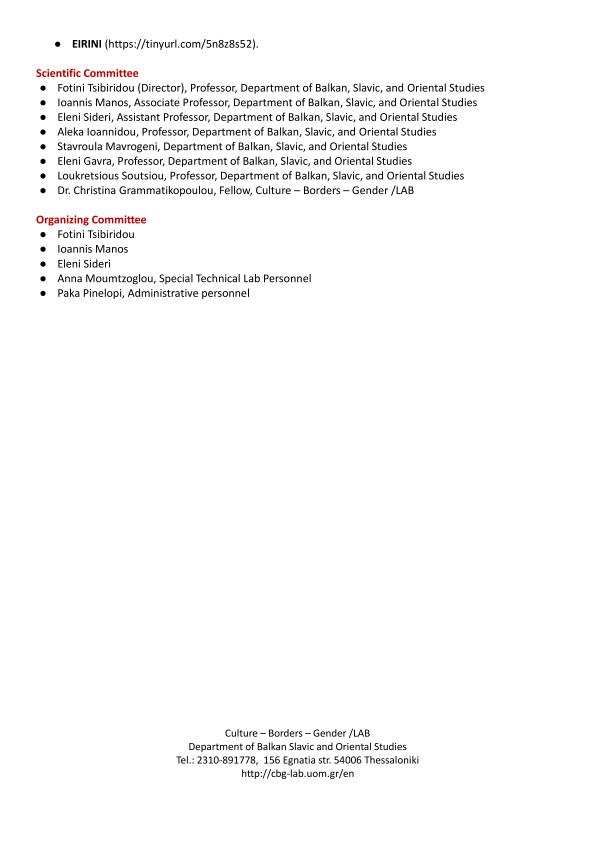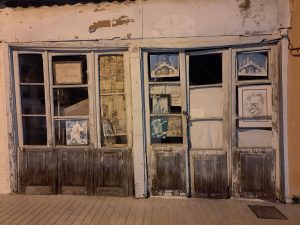ETHNOGRAFEIN
Critical dialogues, epistemological challenges,
field experiences, creative texts
“Borders and boundaries revisited:
Anthropological perspectives and public engagement”

Performance oikade (Aleksandros Plomaritis)
[provided by Dr. Christina Grammatikopoulou]
The online seminars series ETHNOGRAFEIN, since its inception in the spring of 2021, aims to contribute to a critical and interdisciplinary discussion about the theory and practice of ethnography, the epistemology of research, the significance of embodied experience, and also the modes of dissemination of the anthropological knowledge produced to both academic and non-academic audiences. The anthropological endeavour, both as a mode of research practice and a form of political writing, is based on the fundamental epistemological premises of critical evaluation, empathy, reflection, and self-referentiality and highlights the significance of a multifaceted analysis for the understanding of the local to the global.
Organisation and coordination: Fotini Tsibiridou – Ioannis Manos – Eleni Sideri
“Borders and boundaries revisited:
Anthropological perspectives and public engagement”
The 4th period of the ETHNOGRAFEIN online seminars, starting in October 2023 with the title “Borders and boundaries revisited: Anthropological perspectives and public engagement“, sets the study of geopolitical borders as its point of departure to examine the diverse phenomena and processes that abound in the contemporary state border regions and have multilevel consequences for the border populations.
By definition, studying borders and boundaries involves exploring the relationship between the ‘inside’ and the ‘outside’, or the “Self” and the “Other”. However, this is not a study of clear-cut dichotomies but an analysis of the interplay of multiple, multilevel, coexisting, but not necessarily interconnected processes. Boundaries are configured and take shape within a historically determined frame. They are subject to transformations in socio-political and economic contexts and are characterised by institutionally organised asymmetrical power relations. The complex making of borders and boundaries often emerges as a continuous interaction between mobility and enclosure, communication, coexistence, exchange, interaction, sameness and otherness, separation, exclusion, segmentation, connection and disconnection.
The anthropological study of geopolitical borders and their populations by anthropology was systematised in the mid-1990s. It was initially based on two paradigms: the study of the USA-Mexico and European borders. Nowadays, analysing social phenomena and cultural processes concerning borders and boundaries transcends disciplinary boundaries. Novel approaches such as the crοsslocations framework and the current discussion on decolonising methods and epistemologies have expanded the analytical and conceptual significance of the concepts of border and boundary. New methodological and interpretative tools have been created to study politics, trans-border mobility, materiality, transnationalism, topologies and genealogies of migration and refugeeness, border economics, and nation-state policies concerning spatial and cultural diversity, minority rights, and performative culture.
Based on detailed explorations of ethnographic research and anthropological insights, the 4th cycle of the ETHNOGRAFEIN online seminars critically examines the theoretical, epistemological and methodological complexities surrounding the study of geopolitical borders and their imposed dichotomies. Moreover, it discusses anthropology’s potential to bring forth the subtleties of human voices often overshadowed by macro narratives and create an inclusive, comprehensive dialogue in the public sphere that demonstrates the multiplicity of lived experiences.
8 April 2024
“The Georgian-Russian Border: Perspectives from the Periphery”
Florian Muehlfried
Professor of Social Anthropology at Ilia State University (Georgia)
8/4/2024
Florian Muehlfried: The Georgian-Russian Border: Perspectives from the Periphery
In my presentation, I will trace the transformation of the border between Georgia and Russia from soft to hard based on the example of the Georgian highland region Tusheti. After the breakdown of the Soviet Union, the border region was managed flexibly and “from below”. This was followed by an internationalisation of border guarding and attempts to its spiritual fortification. These three phases of border guarding can be related to three different models of the state, and of being a citizen.
Florian Mühlfried is a Professor of Social Anthropology at Ilia State University. His publications include the monographs Mistrust: A Global Perspective (2019) and Being a State and States of Being in Highland Georgia (2014), the edited volume Mistrust: Ethnographic Approximwations (2018), as well as the co-edited volumes Sacred Places, Emerging Spaces: Religious Pluralism in the Post-Soviet Caucasus (2018) and Exploring the Edge of Empire: Soviet Era Anthropology in the Caucasus and Central Asia (2011).
Only those participants who wish to receive certificates of attendance register in the following form: https://forms.gle/gk4SijYeUL4rj2NS9
The registration form will receive answers one week before the seminar, that is from 1/4/24 to 8/4/24.
The seminars are held on Mondays from 16:00-18:00
————————————————————————–
Seminar Platform: ZOOM
Link https://zoom.us/j/8364531775?pwd=OVg3YVZlbmVCYWs3S0JYcEFGYlV1QT09
Meeting ID: 836 453 1775 Passcode: KB2JKa


